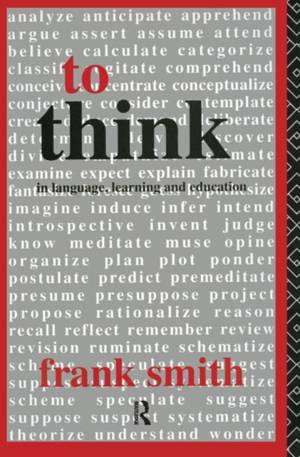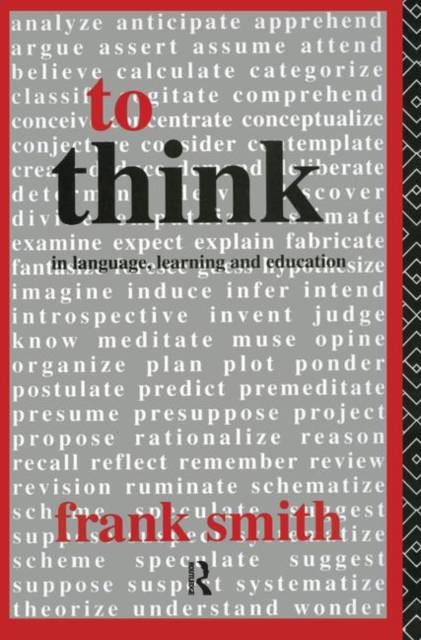
- Afhalen na 1 uur in een winkel met voorraad
- Gratis thuislevering in België vanaf € 30
- Ruim aanbod met 7 miljoen producten
- Afhalen na 1 uur in een winkel met voorraad
- Gratis thuislevering in België vanaf € 30
- Ruim aanbod met 7 miljoen producten
Zoeken
Omschrijving
One of the central questions facing anyone involved in education is can you actually teach anyone to think? To begin to answer this question, it is necessary to know what thinking means. Frank Smith is one of the most influential writers in education today. His work on reading in particular has had a seminal effect on classroom practice throughout the English-speaking world. At the core of all his work has been this issue of the nature of thought. In this book, he analyses the language of thinking and then moves on to look at different aspects of the thinking process: everyday thought, creative and critical thought. Finally he looks critically at the various methods currently advocated for teaching children to think, arguing that learning to think is in the end less a matter of instruction than of experience and opportunity.
Specificaties
Betrokkenen
- Auteur(s):
- Uitgeverij:
Inhoud
- Aantal bladzijden:
- 194
- Taal:
- Engels
- Reeks:
Eigenschappen
- Productcode (EAN):
- 9780415080040
- Verschijningsdatum:
- 29/10/1992
- Uitvoering:
- Paperback
- Formaat:
- Trade paperback (VS)
- Afmetingen:
- 156 mm x 233 mm
- Gewicht:
- 359 g

Alleen bij Standaard Boekhandel
+ 146 punten op je klantenkaart van Standaard Boekhandel
Beoordelingen
We publiceren alleen reviews die voldoen aan de voorwaarden voor reviews. Bekijk onze voorwaarden voor reviews.











